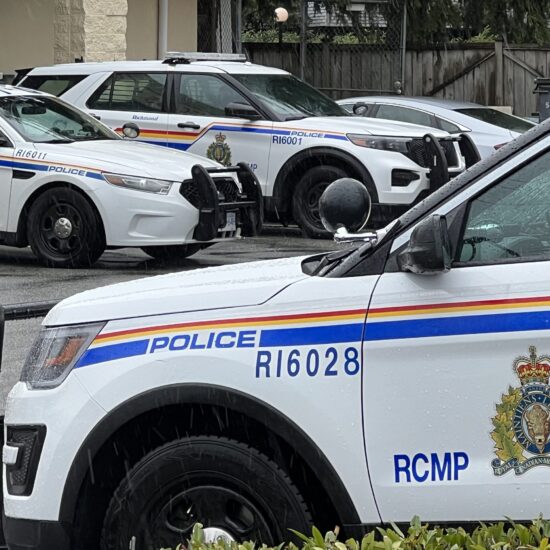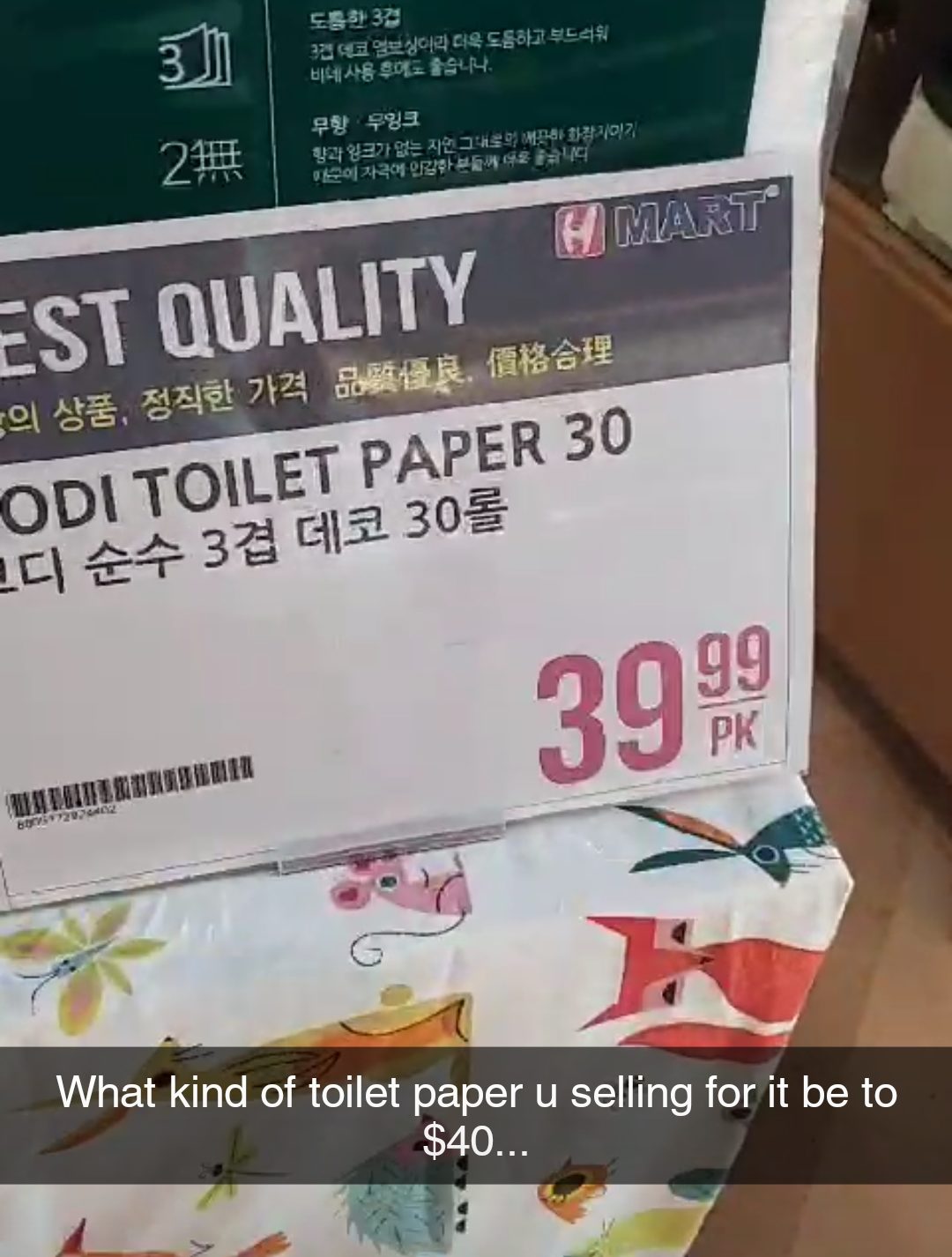
Bob Mackin
(Editor’s note: This is part one of a joint investigation with CTV News Vancouver. See part two on June 24.)
During the early days of British Columbia’s coronavirus pandemic, when toilet paper was such a hot commodity, a gas station in South Surrey and a grocery store in Chilliwack were accused multiple times of price gouging.
One store was allegedly gouging more than the other, according to complaints to Consumer Protection B.C. (CPBC), the agency that regulates retail sales in the province on behalf of the province.
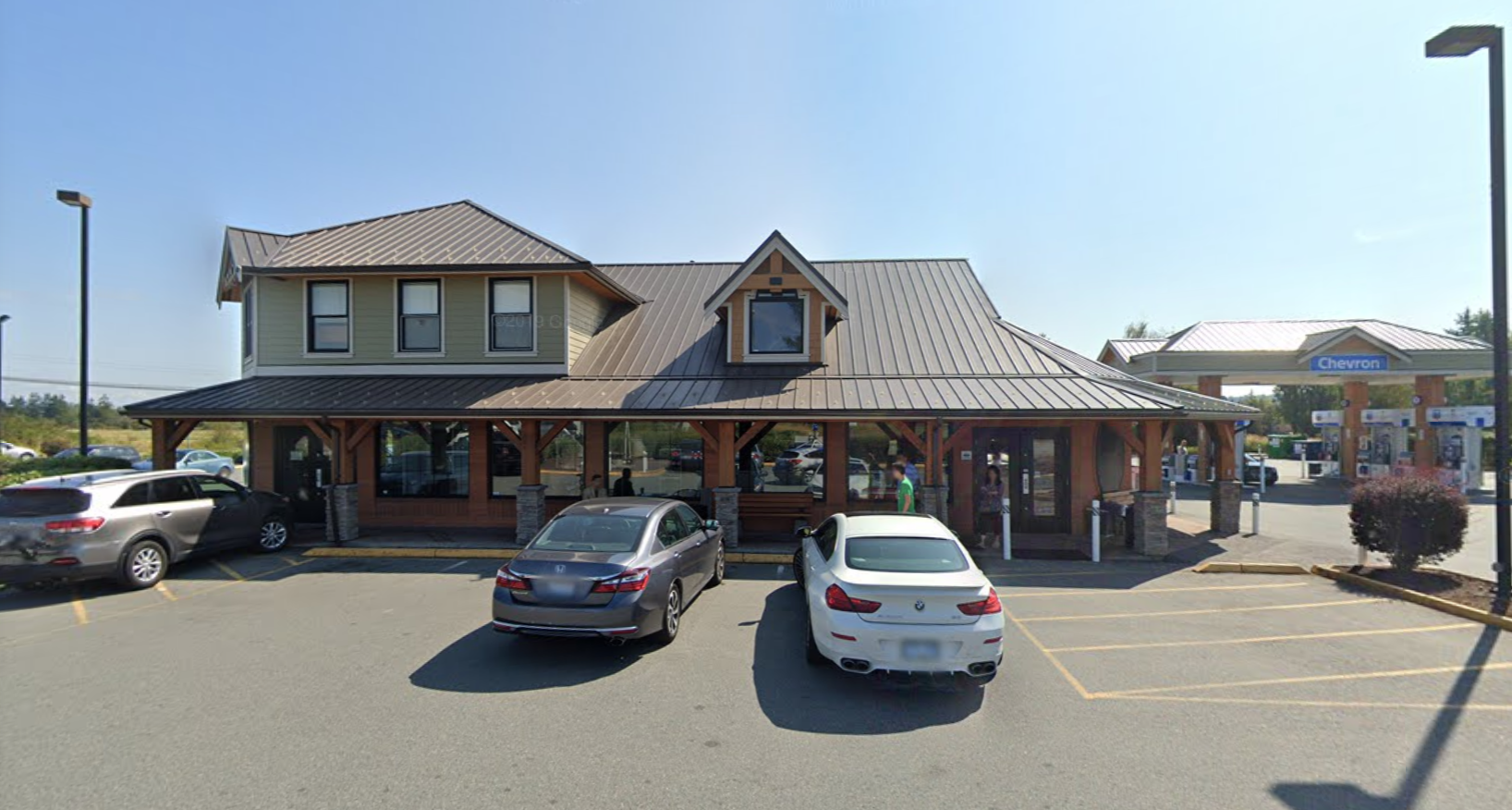
Chevron Town Pump in South Surrey (Google Streetview)
Documents obtained by theBreaker.news, and jointly investigated with David Molko of CTV News Vancouver, show the Chevron Town Pump in South Surrey, formerly the Campbell River Store, was the subject of 10 complaints for selling toilet paper at $10 per roll. None of the complainants reported buying a roll, the kind of jumbo roll normally found in a gas station washroom.
“You ask them for toilet paper and they pull it out from behind the counter and tell you it’s $10 per roll. Ridiculous,” said one complaint.
Wrote another: “Entered the gas station to pay for gas and check on their stock of household items. They are selling rolls of toilet paper for $10 each. I left. Did not buy anything as I am utterly disgusted. There was one gentleman at the counter working. I told him why I was leaving, he had no reaction at all.”
Leroy McKinnon, the spokesman for Chevron owner Parkland, said the company was not notified of the complaints by CPBC, but its customer service team.
“The retailer acted out of bad judgment and against our company values. Any individuals who purchased the single rolls are welcomed to return to the site for a full refund,” McKinnon said by email.
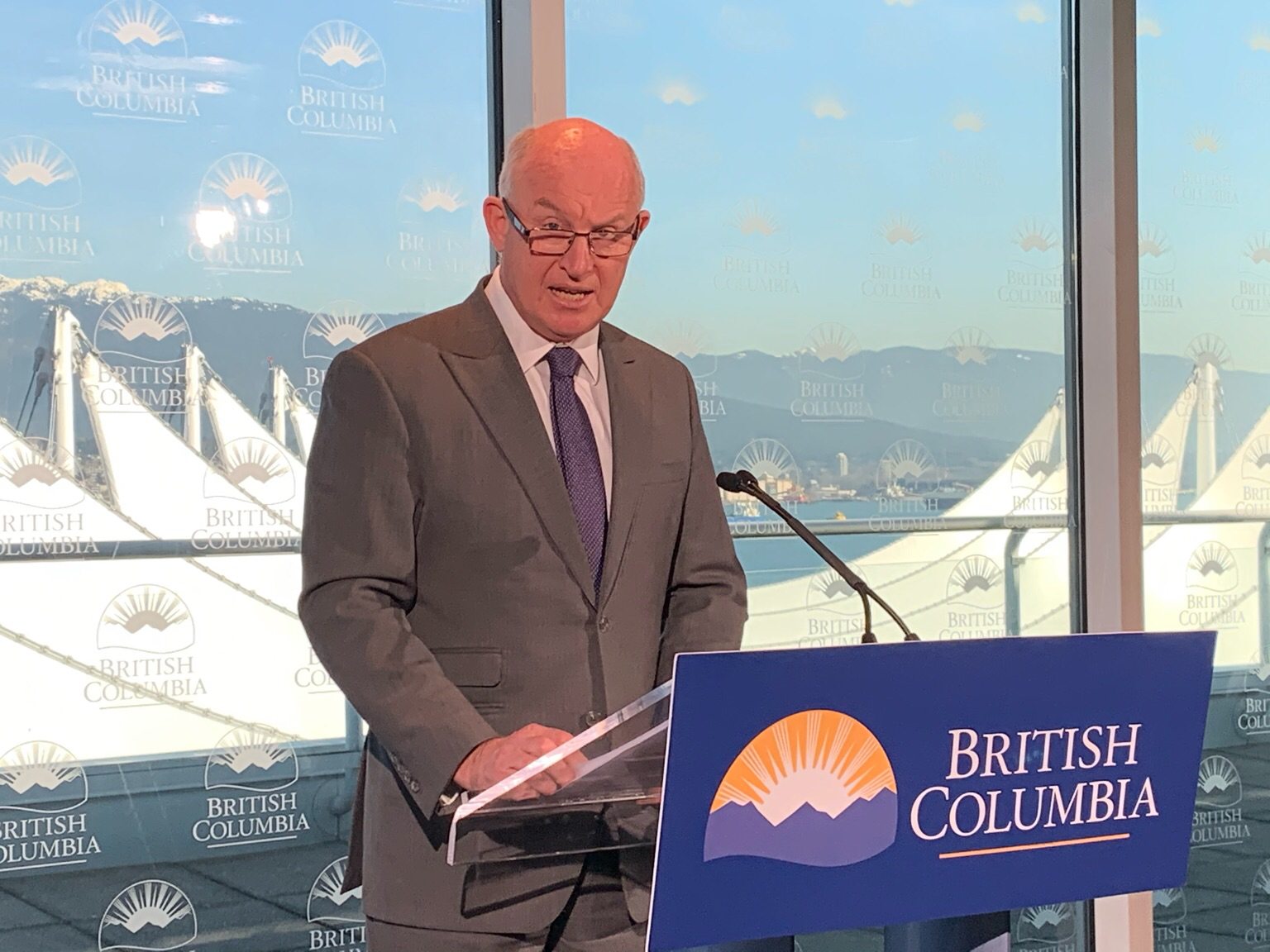
Mike Farnworth (Ina Mitchell)
The Young Street Supermarket in Chilliwack was cited in eight complaints for selling toilet paper rolls at $2.49 each and up. One angry Facebook user called it “selfish, greedy, ignorant.”
“Unwrapped (originally from a large package) toilet paper with no wrap at all — some rolls starting to unwind, sitting on the shelf and selling for $2.99 per roll,” said one complaint.
“They are charging $2.49 for a single roll of toilet paper. It is being sold in a baggie,” said another.
The market’s owner, Mohit Sukhija, told CTV that he got a couple of calls from government departments.
After it went on Facebook, he stopped selling for $2.49 per roll. It is now $7.99 plus tax for a six-roll pack.
“I gotta live in this same community, can’t make ‘em mad,” Sukhjija said.
“I don’t think it was price gouging anyway.”
The complaints were made to CPBC, before Solicitor General Mike Farnworth took a get-tough stance a month after the NDP government declared a state of emergency.
Farnworth promised consequences for “the worst segments of society taking advantage of the most vulnerable.”
On April 19, he announced fines for price gouging and reselling essential supplies would be doubled to $2,000. All law enforcement officers would be empowered to write tickets and CPBC was tasked with being the “first and main point of contact” for price gouging and supplies resale complaints during B.C.’s state of emergency.
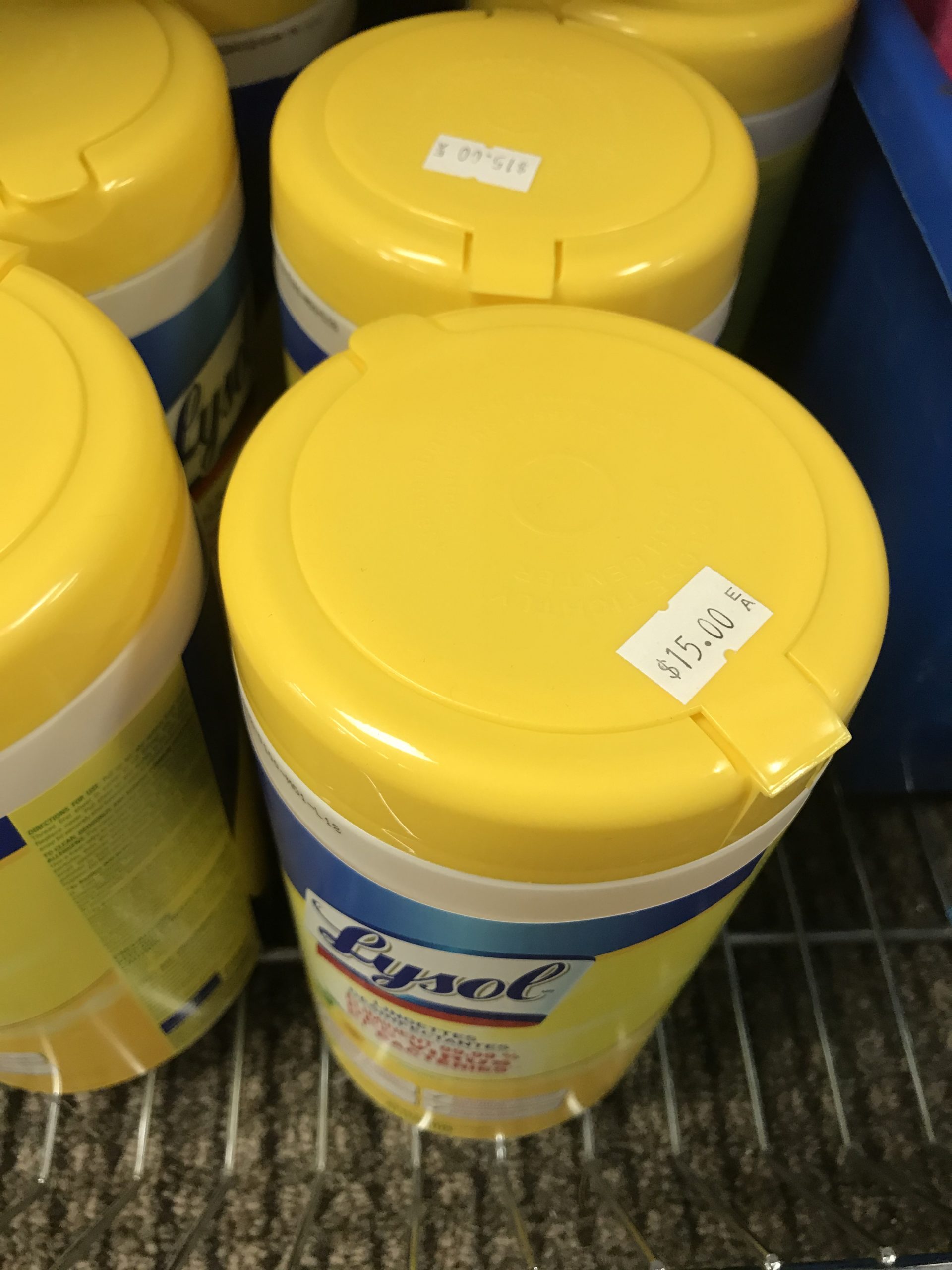
Fraser Shipping and Variety Store (Consumer Protection B.C.)
“They will ensure those complaints are resolved appropriately in coordination with the police and other enforcement officers,” Farnworth said.
But, just over two months later, it appears no fines have been issued under the April 19-announced order.
Asked on June 22, Farnworth said that is not his call.
“It’s not something that I, as minister, [say] you shall do this, or you shall not do that,” Farnworth said. “In terms of whether someone is prosecuted — that is done independently.”
Farnworth’s order prohibited “unconscionable prices for essential goods and supplies,” such as food, water, gasoline, pharmaceuticals and medical supplies and personal hygiene, sanitation and cleaning goods.
Just what is an unconscionable price?
That was left up to interpretation. Farnworth’s definition is “any price that grossly exceeds the price at which similar essential goods and supplies are available in similar transactions to similar consumers.”
“It’s similar to legislation that’s in place in Ontario and Saskatchewan,” Farnworth said in April. “Is the price of a good similar to the prices of goods in a community or province that regular people would expect to pay in comparison to other people? Yes, there is a recognition that prices increase on goods, that’s not what this is about.
“This is when you look at a product and, we’ve all seen examples of it, protective or safety gear is charged 10 times the normal price… or is being sold online at exorbitant prices.”
CPBC said it received 1,500 complaints before Farnworth’s order. Between April 19 and June 21, CPBC opened 448 investigations from 882 complaints received. Prices of medical products (381), hygiene (230) and food and beverage and gasoline (92 each) attracted most of the complaints.
Investigations were launched into 221 medical equipment price complaints, 110 hygiene and 62 food and beverage. CPBC found 332 lacked evidence or did not meet the definition of price gouging and 32 were resolved with the subject businesses.

H Mart Robson’s $39.99 toilet paper, which was eventually marked down (Consumer Protection B.C.)
Only 52 files were referred to the Solicitor General’s ministry for further investigation, and possible enforcement.
Most complaints after April 19 came from Vancouver (100), Surrey (33), Burnaby (30), and Victoria (28) and Richmond (18). Vancouver city hall’s bylaw department and Surrey RCMP told theBreaker.news that they issued no violation tickets.
Was the NDP government slow to react?
The Solicitor General has a dozen primary powers under the Emergency Program Act, which he activated on March 18. The last on the list is to: “procure, fix prices for or ration food, clothing, fuel, equipment, medical supplies or other essential supplies and the use of any property, services, resources or equipment within any part of British Columbia for the duration of the state of emergency.”
Farnworth chose not to fix prices or ration supplies. Unlike B.C., where price gouging is up to interpretation, California law sets a 10% ceiling on prices of essential goods during a declared emergency.
Experts also warn that there is often a fine line between a price hike and price gouge.
“Not all large price increases are tantamount to price gouging,” said Assoc. Professor Werner Antweiler of the University of B.C.’s Sauder School of Business. “It does not apply to non-essential goods and outside an emergency. In some cases production costs can change radically and thus have nothing to do with inflated mark-ups. If demand suddenly increases while supply is fixed, increased prices can help direct goods to those who most need them and are thus willing to pay a higher price. However, during an emergency this raises concerns about fairness and equity, as essential goods need to be provided to everybody in society.”

Miniso surgical masks (Consumer Protection B.C.)
CPBC spokeswoman Tatiana Chabeaux-Smith said in an interview that the agency’s investigators use their discretion and seek to educate retailers and resolve complaints rather than punish.
“The role that we have to play around price gouging is very much around that term voluntary compliance, and educating and trying to get businesses to comply voluntarily which mirrors how we normally approach things,” Chabeaux-Smith said.
When it is unable to achieve voluntary compliance, she said, CPBC then refers complaints to government “and their enforcement officers take it from there.”
CPBC initially referred theBreaker.news to Les Sylven, the deputy director of police services in the Solicitor General’s ministry. But Sylven refused to return phone and email messages. Instead, ministry spokesman Jason Watson told theBreaker.news to file a freedom of information request to learn more about the CPBC files referred to government.
The turnaround time for FOI requests is generally supposed to be 30 business days, but often takes longer and there is no guarantee information will be provided.
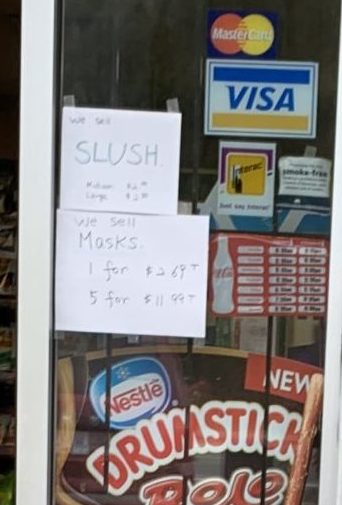
Unsworth Store in Chilliwack (Consumer Protection B.C.)
From the case files
When CPBC provided price gouging reports to theBreaker.news, it said between March 1 and May 14 that it received 2,065 complaints.
Of those, 265 were deemed complaint unfounded, 25 categorized as “consumer alert” — meaning the business voluntary corrected the price — and 22 files remained open.
Complaints included:
- Unsworth Market in Chilliwack selling surgical masks for $2.69 each or five for $11.99.
CPBC notes indicate the owner “was informed of the ministerial order, consumer protection laws, and the penalties associated with non-compliance.”
The price was reduced to $1.79 each or $8.49 for a five-pack and file closed.
- H Mart on Robson Street in downtown Vancouver selling 30 rolls of toilet paper for $39.99.
After CPBC spoke to an account manager, the price was lowered to $20.99. Since the amdended price was “within marketplace norms (70 cents/roll)” the file was recommended for closure.
The Coquitlam location was selling surgical masks at $2.99 each.
“Based on what I’ve observed thus far mask are sold anywhere as low as 65 cents to as high as $1.50 per mask. $2 is on the high side,” said the inspector’s notes.
H Mart said the wholesale cost was $1.50 per mask, but dropped the retail price tag to $2.29 each.
The price “isn’t horrendously above the range,” so the file was closed.
- The Pharmasave in West Vancouver’s Caulfeild Village was reportedly selling 250 mL bottles of hand sanitizer for $25.99.
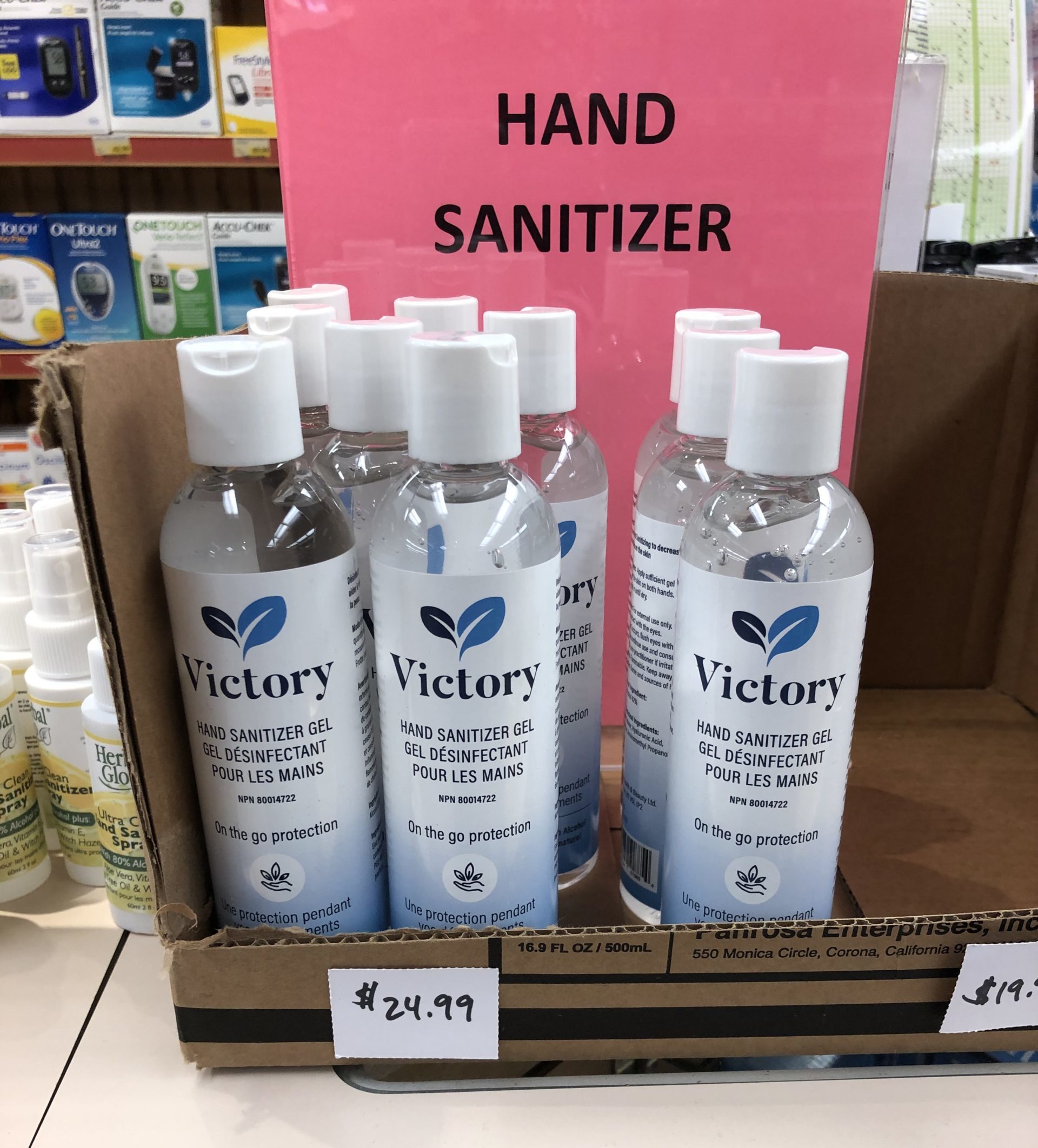
Pharmasave Caulfeild (Consumer Protection B.C.)
A CPBC inspector called the manager twice before finally reaching him.
“He confirmed they are selling a 500 mL hand sanitizer for $19.99 and a 240 mL hand sanitizer for $24.99. He purchased from Victory and paid $17.95 for the 240 mL. (I saw a quote from another file for that same price from Victory.)”
The manager said the markup was 41%, but “I explained his markup is irrelevant, it all comes down to retail price in the marketplace. He argued it’s not available anywhere else. Explained the law, he understands that if his price is much higher than other stores selling hand sani, that he could receive a fine.”
The inspector noted that regular hand sanitizer was selling for 6 cents per mL, but the store was selling an all-natural brand for 10 cents/mL.
“Can’t find a similar comparison in the marketplace. File to be closed.”
- A Shopper’s Drug Mart in Fort St. John arbitrarily chose to split prescriptions into small lots, forcing customers to pay dispensing fees that often exceeded the cost of the medications.
The pharmacy allegedly claimed it was due to a government directive.
Senior Inspector Jason McColl’s warning letter to proprietor Irvin Tang said that while pharmacies can control allotments based on professional judgment, the customer was misled.
McColl’s letter said Tang violated the law against using unclear and ambiguous language during a consumer transaction. The maximum fine under CPBC’s legislation (not Farnworth’s order) is $50,000 against a corporation and $5,000 for a person.
McColl elected not to escalate the matter to a formal hearing, because Tang set the record straight with the complainant.
Support theBreaker.news for as low as $2 a month on Patreon. Find out how. Click here.









